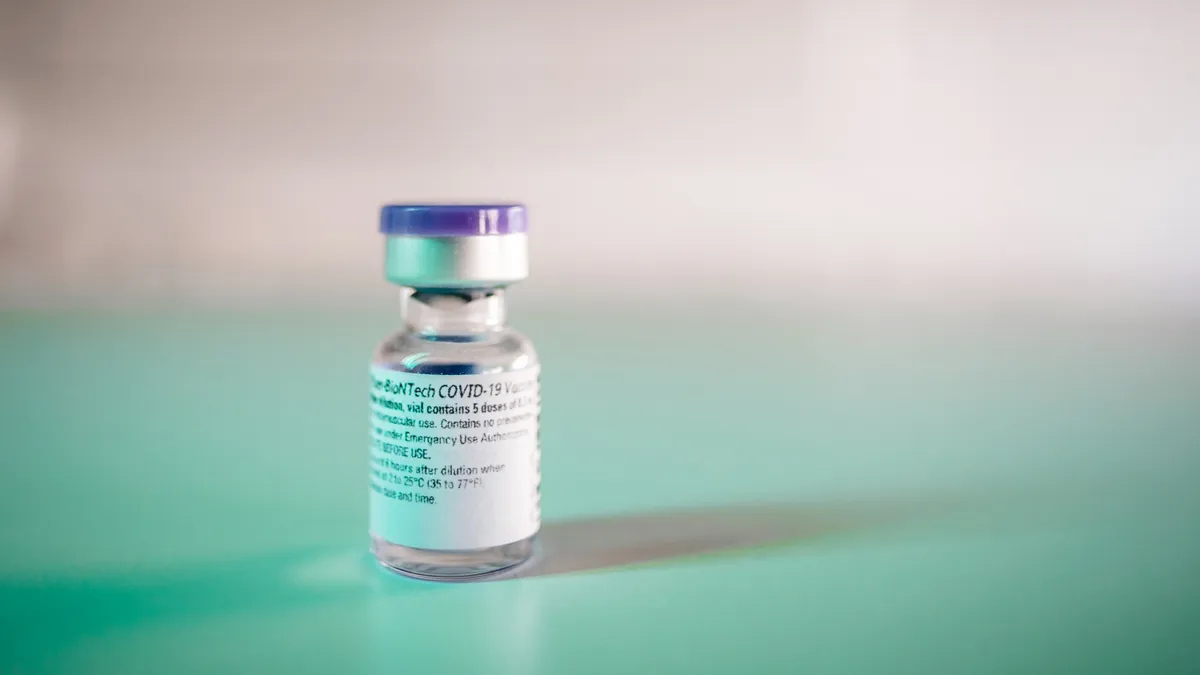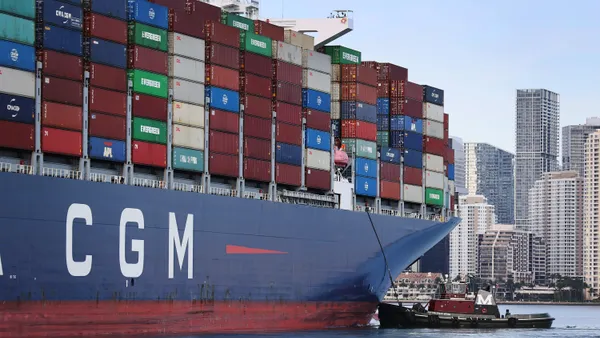The world has been waiting for a coronavirus vaccine. And last week, it witnessed big steps forward when the Food and Drug Administration authorized Pfizer's and BioNTech's coronavirus vaccine and immunizations began in the United Kingdom.
"Collectively, we aim to vaccinate hundreds of millions of Americans by the end of 2021," Pfizer CEO Albert Bourla said in a statement. "With vaccinations set to begin this week, I feel a sense of tremendous pride at what we have collectively achieved over the past nine months."
With the emergency use authorization, a massive logistics effort begins to get the vaccination to immunization sites around the country. Sen. Tammy Duckworth, D-Ill., called it, "the most complex logistical challenges our country has ever faced."
The logistics went into full force over the weekend as employees at Pfizer's Kalamazoo, Michigan, facility began loading vaccines into trucks. The first deliveries arrived Monday morning, and shots started to be administered. Here's a look at some of the figures that highlight the undertaking that stands before the companies tasked with distributing the vaccine.
Minus 70 degrees Celsius
The temperature at which the Pfizer vaccine must be transported. The low temperature requires dry ice to maintain.
Minus 20 degrees Celsius
The temperature at which the Moderna vaccine is expected to stay stable for six months. The warmer temperature requirements — compared to Pfizer's offering — mean it can be stored in a standard freezer.
145
The number of sites expected to receive shipments of the vaccine on Monday, Dec. 14, according to Operation Warp Speed Chief Operating Officer Gen. Gustave Perna. Another 425 sites are expected to get the vaccine on Tuesday, and 66 sites will get delivery on Wednesday.
6.4 million, 12.5 million
The number of Pfizer and Moderna doses, respectively, that are expected to be available in the U.S. the first week following federal approval. Only half will actually be used to ensure there is enough for the required second dose of the vaccine.
16 million
The number of shipments it will take to vaccinate the United States population, according to an interview with Operation Warp Speed officials.
10
The number of jurisdictions that participated in trial distributions of the vaccine with Pfizer and McKesson in late November in an attempt to better understand the delivery plans.
12
The number of trucks that Pfizer expects to leave its formulation and fill facility in Kalamazoo, Michigan, every day.
20
The number of flights Pfizer expects to take place every day around the world to help distribute its vaccine.
'More than 20'
The number of supply partners AstraZeneca said are involved in the manufacturing of its vaccine.
25
The number of cold storage locations FedEx plans to add to its network in 2021. Executives said the new locations will play an important role in vaccine distribution.
24,000 pounds
The amount of dry ice UPS will produce daily at its Louisville, Kentucky, facility.
More than 1 million
The number of vaccine doses that can be carried on a single Boeing 777-200 aircraft, according to a spokesperson from United Airlines. The International Air Transport Association made headlines when it said in a press release that "providing a single dose to 7.8 billion people would fill 8,000 747 cargo aircraft."














